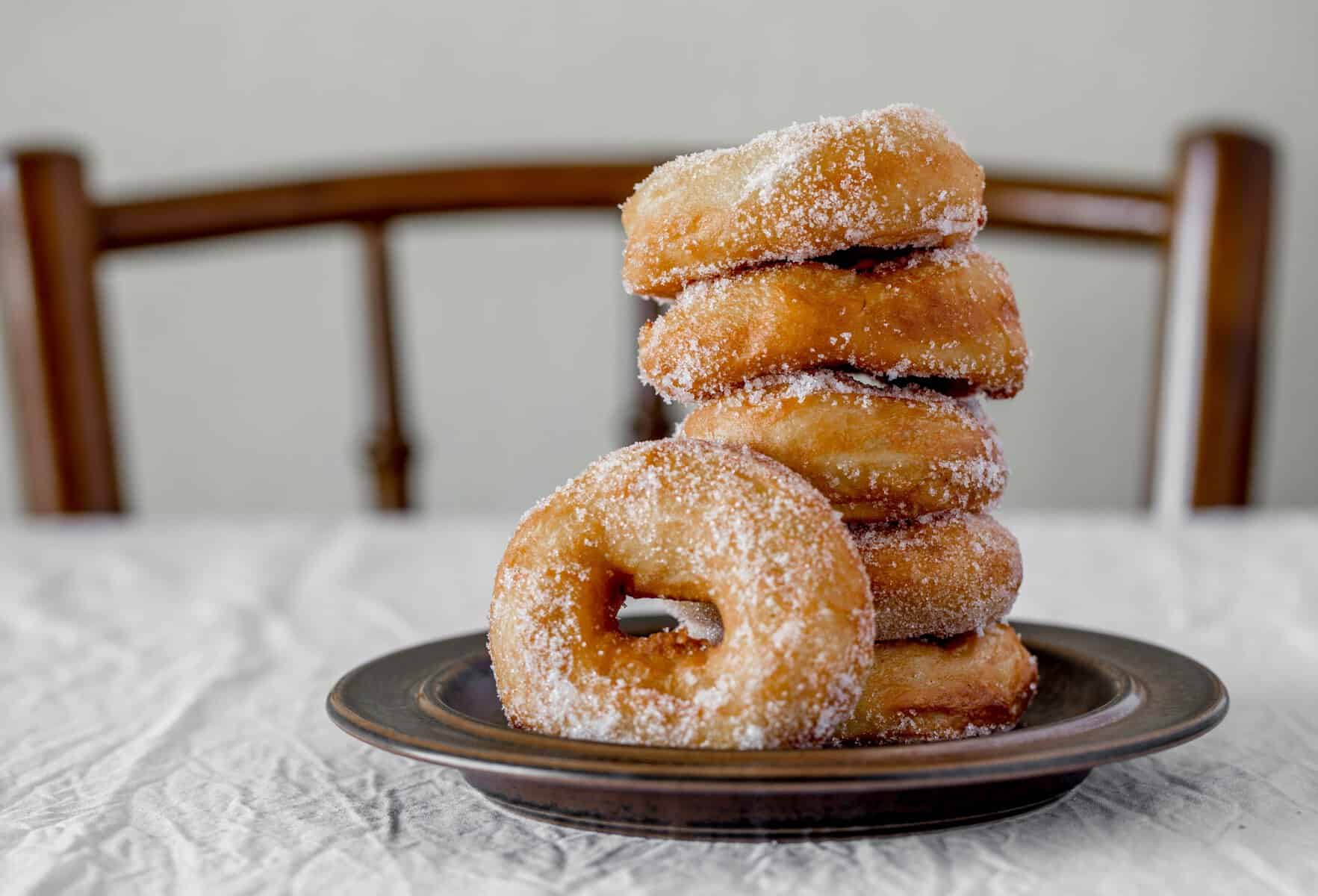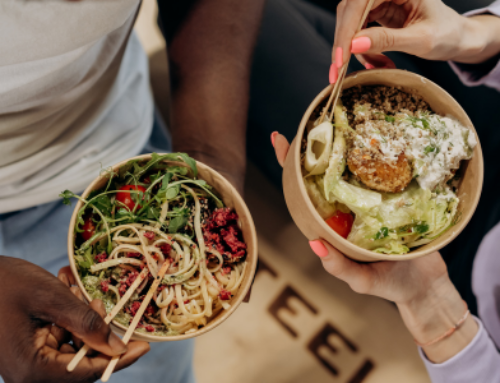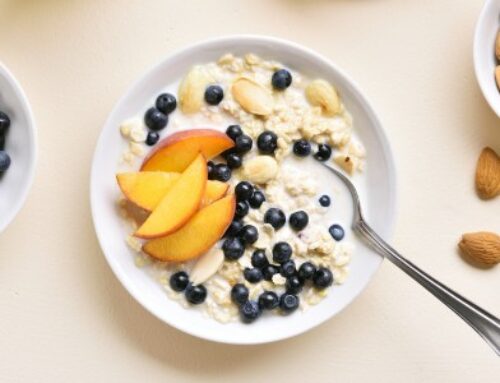
Throwing around the line ‘sweet poison’ in regards to sugar has become confusing for many people.
Why? Because sugar is in nearly every single type of food. And many of these foods should be included in your diet every single day. If you want to be truly ‘sugar free’ then you’d need to eat only chicken, meat and fish. I can easily foresee a 100% meat diet becoming problematic for you. Constipation, for one thing, would be a problem, and it’s also distinctly lacking in a handful of key nutrients.
What is sugar?
It doesn’t matter where the sugar in your diet originated from, it’s all inherently the same (chemically speaking). It does not matter whether sugar has been derived and concentrated from a whole food, is naturally occurring or been added to food. Once it has gone through digestion and enters your blood stream it’s all essentially the same chemical structure and processed the same via metabolism.
So whether the sugar comes from a capsicum, an orange or a cupcake – the sugars that end up floating around your blood stream are essentially the same type. The sugars are: glucose, fructose or galactose. They enter metabolism, are broken down to release energy, and this energy is used by the body to grow, repair and move.
Now, before you stone me and call me a heretic nutritionist for making such statements you need to hear me out. I didn’t say these foods were more or less healthy than each other. I just said that after you’ve chewed them, broken them down with your digestive juices and then absorbed them through your intestinal wall into your blood stream, then the types of sugars present after this process are all the same.
There are, as you know, distinct differences between the three foods mentioned above, but I want you to understand that it’s actually not at all about the sugar. There’s much more to good nutrition than focusing on just one nutrient. Narrowly focusing in on the individual nutrient leaves a person short sighted to the whole picture of nutrition and a balanced diet.
There is much more to healthy eating than just demonising sugar.
And I would argue that demonising sugar is simply repeating the mistakes of the past when we demonised fats. Also, an individual would do better to focus on the particular whole foods they should be including in their diets rather than focusing on the foods (or nutrients) that they may need to cut out.
You may cut out as much sugar as possible, but if you don’t eat enough vegetables (for example), your risk of poor long term health is high. If you’re iron deficient, how do you expect to function properly day to day? Cutting out sugar can’t help you with that. If you’re constipated from a lack of fibre, how do you expect to have long term gut health? Cutting out sugar means nothing in the context of a poorly balanced diet.
Compare the pair
So, when thinking about a capsicum, an orange and a cupcake, there are a few things to consider when rating their healthiness. It’s not just about the sugar. It’s the package that the sugar arrives in.
Ask these questions about a food:
- What nutrients does it provide?
- Is this food offering my body vitamins, minerals and fibre?
- How much energy does it provide?
- Is it the right amount of energy (too little or too much) for me?
- Is this food easy to overeat or am I likely to feel full when I’ve eaten enough?
- Where does this food sit in the context of my whole day?
Answering these questions will most likely lead you to thinking that the capsicum and orange are better choices than the cupcake. However, what about that cupcake? What if you want to eat it?
An individual contacted us recently very upset that we included brown sugar in some of our recipes. They felt that including such an inflammatory ingredient (their words), among others, was irresponsible of us. What they inherently misunderstand about nutrition is that it’s the same type of sugar (chemically) that enters the blood stream after digestion from all sorts of different foods and that if inflammation occurs, it wasn’t the ‘brown sugar’ that did it. Inflammation is a result of a complex cascade of metabolic, neurological and immune factors (culminating after weeks, months and years) that interact with our genetics, environment and in some cases, our diet. Also, the brown sugar doesn’t cause inflammation any more than the sugar naturally present in a capsicum would.
What causes health problems and inflammation in the body?
Well, for starters, a host of different things (bacteria, viruses, pollution, radiation, damaged body cells, etc) and a diet consumed in excess. Excess in terms of consuming more energy, from sugars, fats, starches and proteins than our body actually needs and doing it constantly over the long term. This leads to storage of excess body fat, which over time causes these fat cells to become overfull and sick. To make complex biochemistry simple, these sick fat cells lead to what’s known as low-grade inflammation which has a host of metabolic flow-on effects that eventually lead to problems like heart disease, type 2 diabetes and cancer.
Simply put
When you consume more sugar and more broadly, more energy than your body needs, it leads to metabolic disturbances. If these disturbances carry on long enough they lead to chronic disease.
One Blood orange and poppy seed muffin contains 5.8g of sugar. This is less than 1.5 tsp, the same amount of sugar in half a red capsicum. The majority of the sugar comes from ¾ cup brown sugar and two large oranges added to the whole recipe which makes about 20 individual muffins.
That muffin, with its 1.5 tsp of sugar, in the context of a day that doesn’t exceed your energy needs and contains 5 serves of vegetables, 2 serves of fruit, minimally processed protein sources such as lean meats, poultry and seafood, 1-2 serves of dairy such as natural yoghurt and milk and some other whole foods such as avocado, nuts and seeds, would be totally and completely fine. It won’t spiral you into inflammation, spike your insulin levels or put you at risk of poor health. This is because overall diet quality – the big, long term picture – is the BIGGEST predictor of long term health.
If your diet is full of variety, meets your nutrient needs and helps you stay satisfied and energised than one cupcake with brown sugar as an ingredient is completely fine to eat occasionally and there doesn’t need to be any guilt or shame associated with eating it. In fact, I’d suggest you savour and enjoy every mouthful.
If, however, that muffin with its 1.5 tsp sugar, is in the context of a day that’s high in ultra-processed foods like cakes, biscuits, chips, salamis, lollies, soft drink, pastries and high quantities of refined carbohydrates like white bread and pasta, it’s a completely different story. Maybe there’s chocolate cereal for breakfast and dessert every night after dinner. There are little or no vegetables, no nuts and seeds, no legumes and whole grains, but lots of sausages, butter, flavoured milks and ice cream. A sweetened muffin in the context of a diet like this, could potentially be an area that an individual could improve. If I was their nutritionist, I’d most likely say: “Perhaps swap the muffin for a whole orange”.
I’d also say, however: “Swap your afternoon snack with some vegetable sticks and let’s use some whole chicken breast at dinner instead of those chicken nuggets. How about swapping to a grainy, rye style bread and swap some of that pasta for some 4 bean mix and don’t forget to add in some extra vegetables.”
My goal with this client is not shaming them for their food choices, but equipping and empowering them to improve their overall diet quality. While still having them eat and enjoy the foods they love.
Individual foods matter, but not in isolation of the context of which those foods are in. Try not to think of your diet as black and white, with some foods being ‘good’ and some ‘bad’. Try not to focus on some nutrients being ‘toxic’ and others not. Think of food as neutral, neither good or bad, and that it’s your pattern of consumption that determines whether that food promotes or hinders good health. When it comes to nutrition, the ‘poison’ is in the dose. Too much sugar can lead to poor health, but so too can too much iron, vitamin c and other types of nutrients.
One final note
I actually wrote the blood orange and poppy seed muffin recipe recipe by tweaking a traditional one. Life’s too short to not enjoy yummy foods, you don’t need to completely cut them out. Just eat them with mindfulness, moderation and if you can, give it a healthy makeover.
Here’s what I did to increase its healthfulness but still keep it yummy and enjoyable:
- Swapped white flour to whole meal flour – this boosted the fibre.
- Added almond meal – this added healthy fats and boosted the fibre and nutrients.
- Instead of juicing the oranges, I peeled and blended them and included the juice and pulp in the recipe – this also boosted the fibre.
- I reduced the amount of brown sugar – the recipe called for 1 cup, I dropped it by a third and still found the muffins sweet enough.
- Swapped the butter for olive oil – the quantity was kept the same, fats are fine to eat, I just swapped the types of fats from saturated to unsaturated.
The result? A delicious muffin, you can enjoy, as part of a healthy, balanced diet. It’s still a cake, so treat it like one. Be mindful to not over-consume it, but when you do partake, enjoy every last little bite!
If you need help with managing your sugar intake and improving your overall diet quality we’re here to help. Our Nourish Your Body Program in our mobile app will help you build long term healthy eating habits for good!







